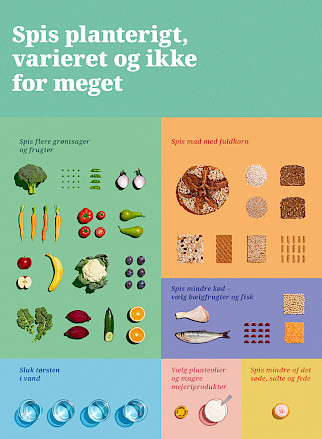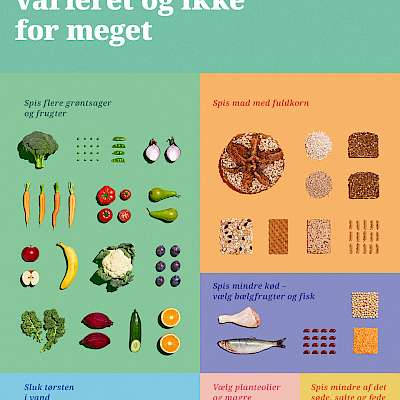Denmark is one of only a few countries to have introduced dietary guidelines that focus on both population health and that of the planet. Recognising that citizens were eating too much meat, the Danish Government drew up a new food policy:
- Citizens are advised to eat a “climate-friendly” diet, with less meat, and more vegetables, fruit and pulses. It’s recommends a 100g of legumes a day (beans, chickpeas and lentils)
- The new policy recommends Danes eat no more than 350g of meat a week, which goes beyond the UK’s Eatwell guide of limiting meat to 490g per week.
- The average Dane’s diet is responsible for approximately 8kg of CO2 a day, but by reducing meat consumption and opting for more plants, this figure could be cut by up to 35% according to the Technical University of Denmark.
- The healthy and sustainable food policy was produced by Government departments working closely with consumer organisations, educational institutions, NGOs and food retailers.
- With clear imagery and messaging, the aim is to increase awareness, motivation and behaviour change among citizens to improve eating habits to protect both population health and climate.
Danish Minister of Food, Agriculture and Fisheries, Rasmus Prehn:
“There are no accusing fingers pointed, but rather a simple guide that embraces both considerations – because fortunately, what is healthy for the climate, is typically also healthy for us.”

